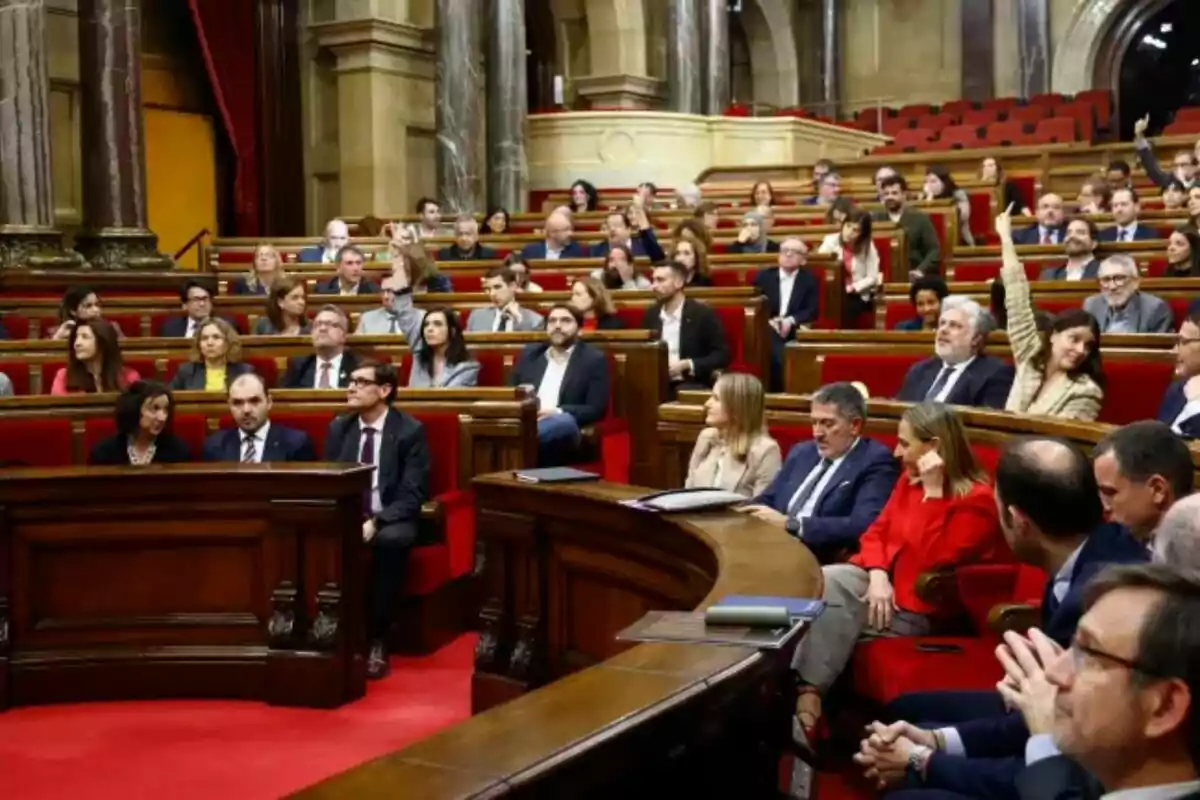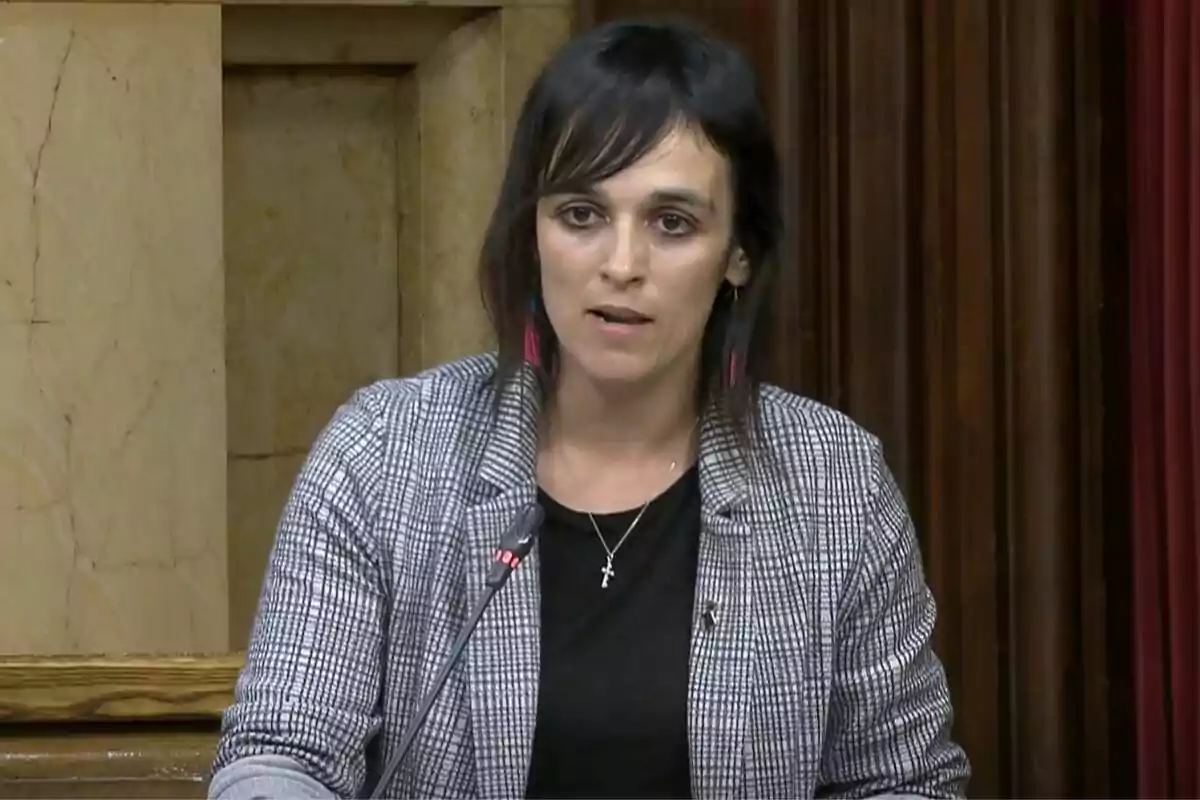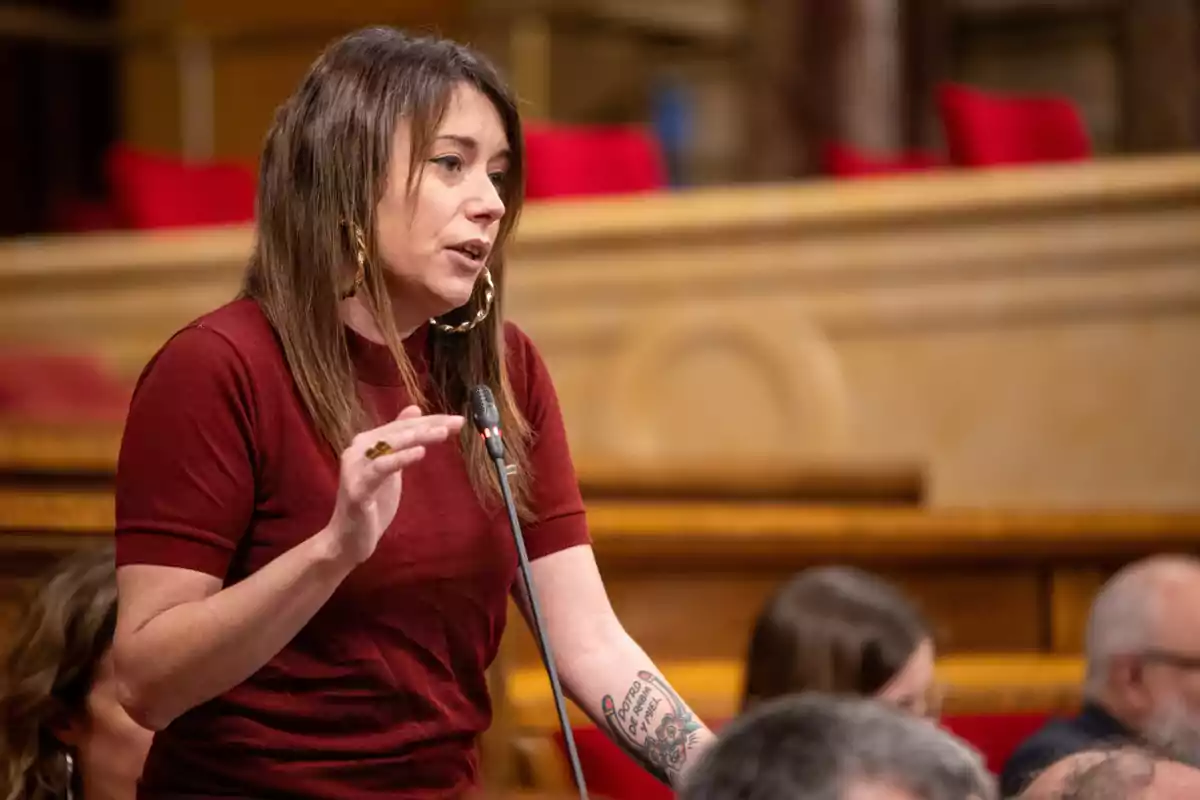
PSC, Junts, ERC, Comuns, and CUP Now Explore a 'Pact Against Hate Speech'
The Signatories of the Anti-Fascist Pact Seek New Ways to Censor Their Opponents
PSC, Junts, ERC, Comuns, and CUP have announced the imminent creation of a study commission on racism and hate speech in Parliament. The five formations signed the 'anti-fascist pact' against Vox and Aliança Catalana at the beginning of the legislature. PSC proposed to PP that they also join the group, but the populars declined.

The sanitary cordon is not only failing to achieve its objective, but it is also causing the opposite effect to the desired one.
Polls indicate that the parties of the sanitary cordon are stagnating or, as in the case of Junts, collapsing. Meanwhile, Vox is maintaining or slightly growing, and Aliança Catalana is skyrocketing.
But there is something more concerning for the signatories of the 'anti-fascist pact,' and that is that Vox and Aliança Catalana have managed to dominate the narrative in the chamber. Their interventions are the most followed by the audience, and in a short time, they have managed to set the political agenda and public debate.
The failure of the sanitary cordon has led them to intensify their strategy, and they are now exploring new formulas to censor their opponents.
National Pact Against Hate Speech
Seeing that isolation doesn't work, they are now studying "tools and mechanisms" to limit parliamentary debate. So far, they have tried through the arbitrary intervention of the president of Parliament, Josep Rull. But he has been warned by the chamber's lawyers, who have established that freedom of expression must be above the subjective perception of "hate speech."
PSC, Junts, ERC, Comuns, and ERC now want to lay the foundations for a future "national pact against hate speech." They believe that the time has come to act more decisively against speeches that "endanger coexistence, social cohesion, and democracy itself."

The first step will be the creation of a study commission to analyze where and how these speeches originate. Through which channels they are disseminated and to which groups they are directed.
The next step would be to incorporate it into the functioning of the chamber, to improve existing mechanisms to act against hate speech.
Although their promoters are clear that parliamentary regulations already exist to limit these speeches. Their priority is to address it from the political and social sphere, rather than the institutional one. In any case, they believe it can contribute to increasing pressure on Vox and Aliança Catalana, whom their strategy doesn't even tickle at the moment.
Warning to the President of Parliament
The problem for these parties is that the chamber's lawyers have already warned of the double standard used to censor some parties. For example, in the current legislature, Josep Rull has already interrupted Vox and Aliança Catalana several times to warn them. But on the other hand, he has overlooked the insults of "fascist" and "Nazi" uttered by deputies of Junts and Comuns to Sílvia Orriols.
Additionally, the lawyers have warned of the risk the president of the chamber assumes by acting with such blatant arbitrariness.
For example, he has warned Vox and Aliança Catalana several times for linking immigration with the rise of crime. And yet he refrained from acting against the CUP deputy when she cheered the stoning of police officers in Salt.

The linking of immigration with the rise of crime may be more or less appealing, but it is a political position that can be expressed and debated. On the other hand, encouraging violence against the police is closer to inciting a crime.
Finally, there is the issue of the legitimate right to representation of these parties, which received 366,856 votes. Where do the rights of these voters to be represented by their parties, protected by the chamber's freedom of expression, stand?
More posts: